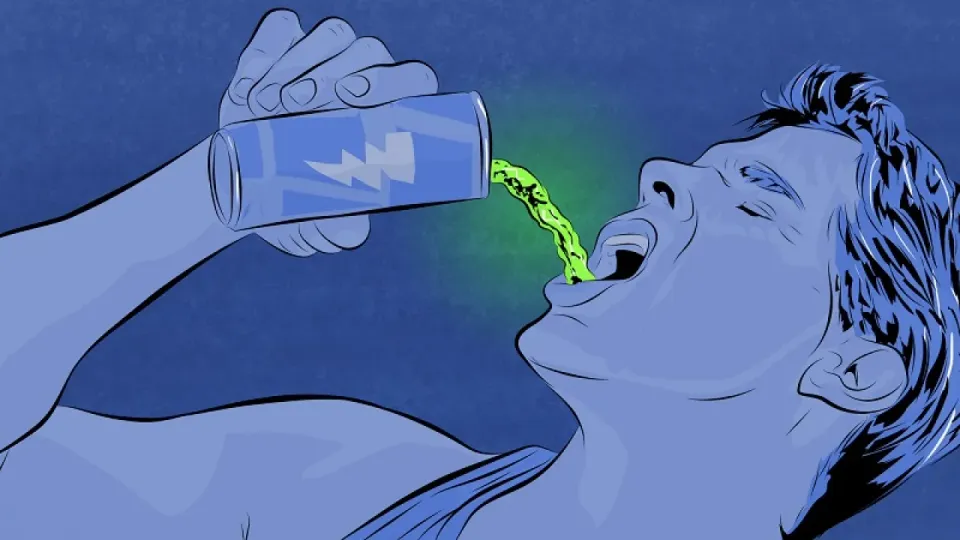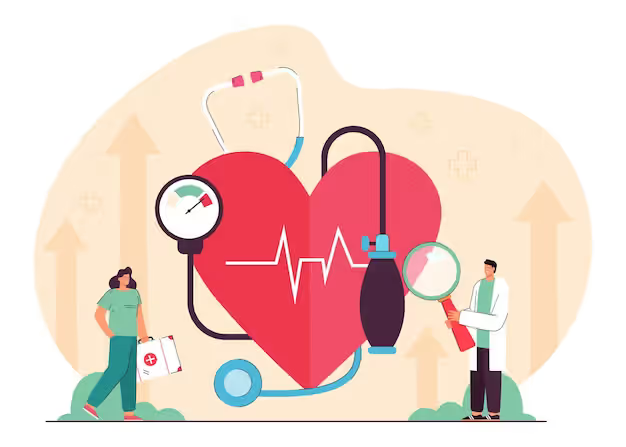The Risks of Energy Drinks: Are You Playing with Fire?

Energy drinks have taken the world by storm, becoming a multi-billion dollar industry with over a hundred brands vying for attention. But are these highly popular beverages hiding potential dangers?
In this article, we delve into the risks associated with energy drinks, exploring their impact on blood pressure, cerebral blood flow velocity, and heart health. Prepare yourself for an eye-opening journey as we uncover the truth behind those vibrant cans of liquid energy.
The Evolution of Energy Drinks: More than 70 years ago, the first energy drink, Dr. Enuf, hit the market. Since then, the industry has exploded, with sales reaching a staggering $50 billion annually. However, concerns have been raised by leaders regarding the safety of energy drinks, as the number of emergency room visits related to their consumption has skyrocketed in recent years.
Unmasking the Culprit:
Energy drinks often serve as a mask for the signs of alcohol intoxication, leading individuals to believe they can consume more alcohol safely, resulting in a state of "awake drunkenness." Furthermore, the consumption of energy drinks is frequently accompanied by other substances, making it difficult to pinpoint the exact cause of negative outcomes. Research has shown that adolescents consuming energy drinks are prone to various negative consequences, but it is important to consider that these individuals may also engage in other unhealthy habits and risky behaviors.
Examining Blood Pressure:

One of the concerns raised by public health advocates is the potential for energy drinks to increase blood pressure. Early studies examining the effects of Red Bull on blood pressure found no significant changes 30 minutes after consumption, even with a larger 440ml can. However, a critical finding emerged in 2014, revealing that Red Bull does raise blood pressure, albeit with a delayed effect that peaks about an hour after consumption. Additionally, researchers discovered a decline in cerebral blood flow velocity during resting conditions, challenging the notion of energy drinks having beneficial effects on the body and mental strength.
Differentiating Caffeine from the Rest:
To determine whether the rise in blood pressure is solely due to caffeine content, researchers conducted a controlled study. Young, healthy volunteers were randomly assigned to consume either a large energy drink or a control drink containing the same amount of sugar and caffeine but without the energy drink's proprietary blend ingredients. Astonishingly, participants who consumed the energy drink exhibited significantly higher blood pressure levels compared to the control group, despite both groups receiving an equal caffeine dose. The energy drink consumers also displayed a higher QT interval on an EKG, a marker associated with an increased risk of fatal heart rhythms.
Unveiling Hidden Ingredients:

The quest for understanding the risks posed by energy drinks doesn't end with caffeine. In 2008, authorities discovered cocaine in Red Bull drinks, prompting an investigation. The manufacturers defended themselves, stating that only the extract of the coca leaf was used for flavoring. Such incidents highlight the need to scrutinize other ingredients present in energy drinks and their potential impact on consumer health.
Conclusion:
The allure of energy drinks may be hard to resist, but it is crucial to acknowledge the potential risks they pose. Energy drinks can mask the signs of alcohol intoxication, disrupt blood pressure, and impede cerebral blood flow velocity.
While caffeine is commonly thought to be the main culprit, research reveals that other proprietary blend ingredients in energy drinks play a significant role. As consumers, we must approach these beverages with caution and demand further investigation into their composition and effects. Stay informed, stay vigilant, and prioritize your well-being above all else.
So next time you're reaching for that colorful can promising an instant energy boost, take a moment to consider the hidden risks and ask yourself: Are you playing with fire?
Reflection Questions:
- Have you ever experienced the phenomenon of "awake drunkenness" after consuming energy drinks? How do you think this affects your decision-making abilities?
- Do you frequently consume energy drinks alongside other substances or engage in risky behaviors? Reflect on the potential impact this may have on your overall health and well-being.
- Were you aware of the delayed effect energy drinks can have on blood pressure? How does this new information change your perception of the risks associated with these beverages?
- Considering the findings of the study comparing energy drinks to a control beverage, how does the presence of other ingredients in energy drinks contribute to their impact on blood pressure and heart health?
- After learning about the incident involving cocaine in Red Bull drinks, how does this affect your trust in the industry and the transparency of the ingredients used in energy drinks?